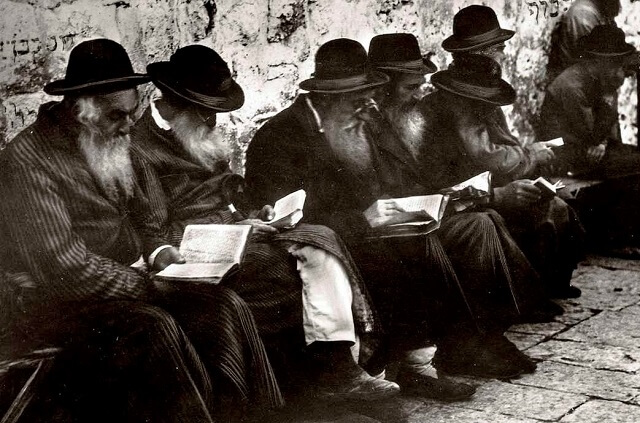
In late 1915, Rav Kook was invited to fill the rabbinic post at the Spitalfields Great Synagogue, known as “Mahzikei HaDath,” in London. Rav Kook agreed to accept the position, but on one condition: that after the war, he would be free to return unhindered to Eretz Yisrael.
His private secretary, Rabbi Shimon Glitzenstein, recorded his experiences with Rav Kook during that time period in a booklet titled “Mazkir HaRav” (“The Rabbi’s Secretary”). Glitzenstein included in the booklet the following account of a sleepless night he spent in a London bomb shelter together with the Rav.
During the aerial bombardment of London during the First World War,1 the residents of the city took refuge in various shelters. The Jews who lived in the vicinity of Rav Kook took shelter in the cellar of the Mahzikei HaDath synagogue. Against his will, Rav Kook would also go there, but only to alleviate the fears of his family.
The cellar was crowded and stifling. The children wailed, and the young people complained. Some of the men gathered around Rav Kook and began reciting Tehillim (Psalms) together. But as the noise and explosions outside grew louder, they fell silent. Those musically inclined began to sing loudly to drown out the terrifying sounds from the streets. Some in the shelter objected to the singing, but the rabbi encouraged the singers to raise their voices even louder.
After several long hours, most had fallen asleep. Only Rav Kook remained calmly in his spot, with no sign of fatigue or distress. In his hand he held his small Bible. He recited chapter 43 of the Book of Psalms, which opens with the request, “Vindicate me, O God. Champion my cause against a merciless nation!”
I was accustomed to the sound of the rabbi’s recitation of Psalms when he was alone in his room. He would read them loudly, with bitter weeping and an outpouring of the soul. But this recital of Psalms was different. I did not listen to the words, which he recited quietly, but to the unique melody which accompanied them. The tune was full of soul; it was permeated with a spiritual sweetness.
From the depth of his soul, Rav Kook poured forth his petitions before his Father in heaven. It was as if, through his voice, the entire Jewish nation was pleading, asking God for compassion and redemption.
“Send forth Your light and Your truth; they will guide me. They will bring me to Your holy mountain and to Your dwelling place” (Psalms 43:3).
The rabbi was completely focused on his recitation. Even when it was announced that the danger had passed, he remained oblivious to the commotion of the people leaving the shelter. He continued reciting the chapter, in that soft, sweet melody, to its final verse
(Stories from the Land of Israel. Adapted from Shivchei HaRe’iyah, pp. 129-130.)
[1] The first-ever aerial bombardment of civilians took place on January 19, 1915, when German Zeppelins dropped high-explosive bombs over several English towns. Over the next three years, the Germans dropped 5,800 bombs over England, killing 557 people and injuring 1,358. (Source: Wikipedia, German bombing of Britain, 1914–1918.)
Illustration image: Jewish men pray at the Western Wall, 1929 (Wikimedia Commons)





